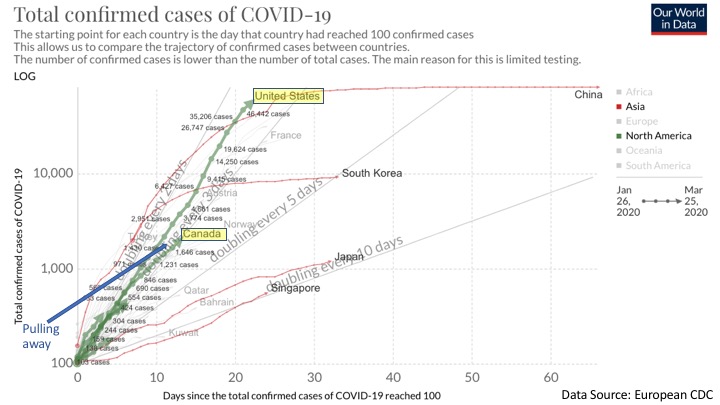It details the re-emergence of iterative results-based medicine — as opposed to so-called evidence-based medicine.
The latter has its place, but the cost of formality & delay is too high in a pandemic.
bloomberg.com/news/articles/…
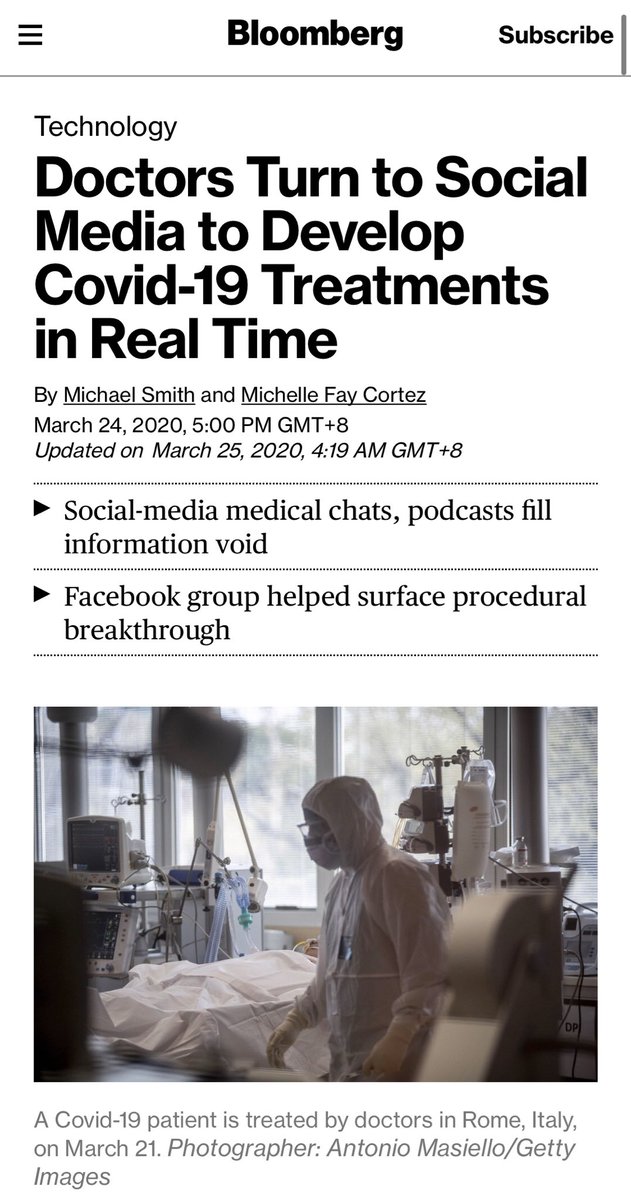
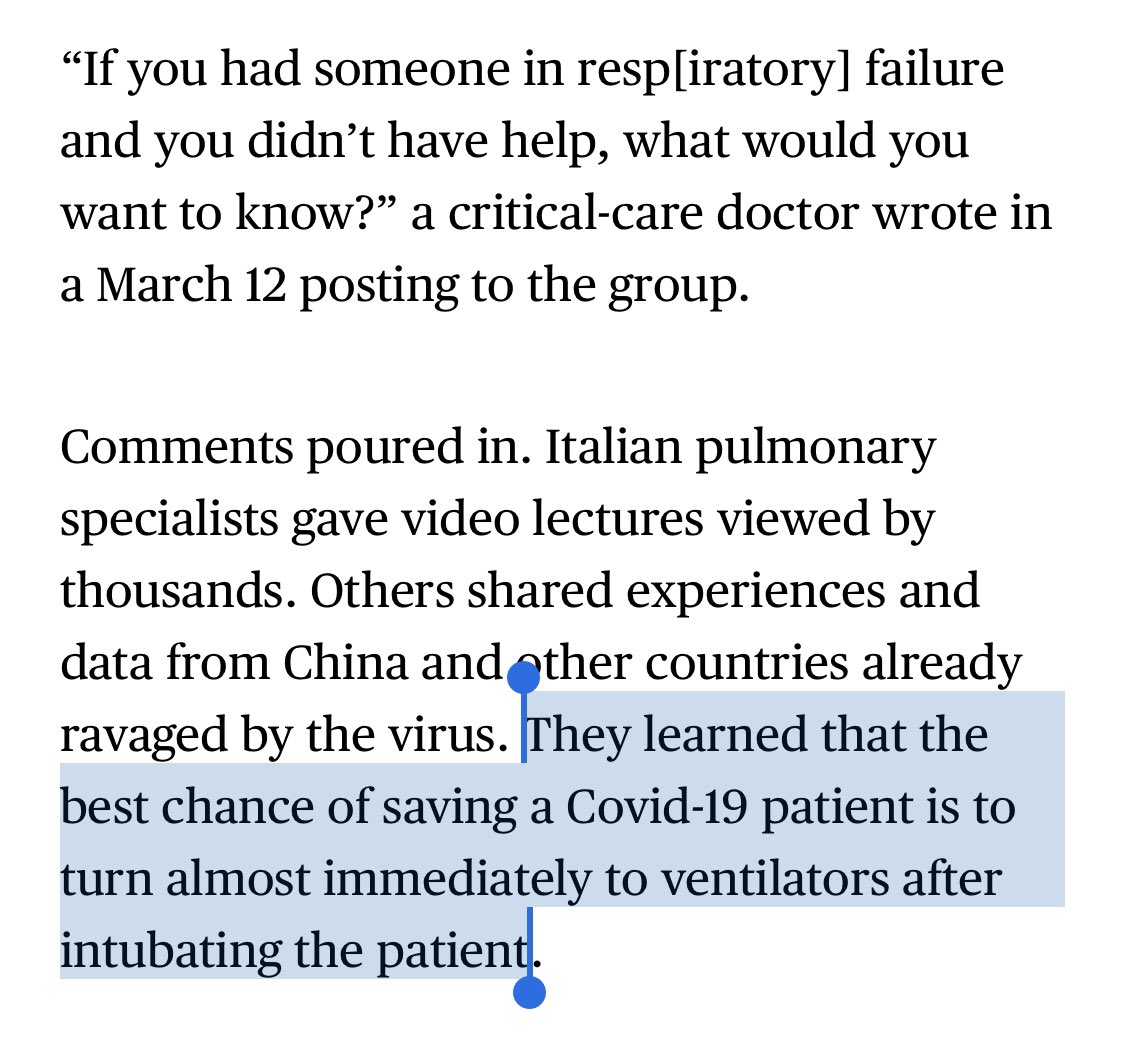
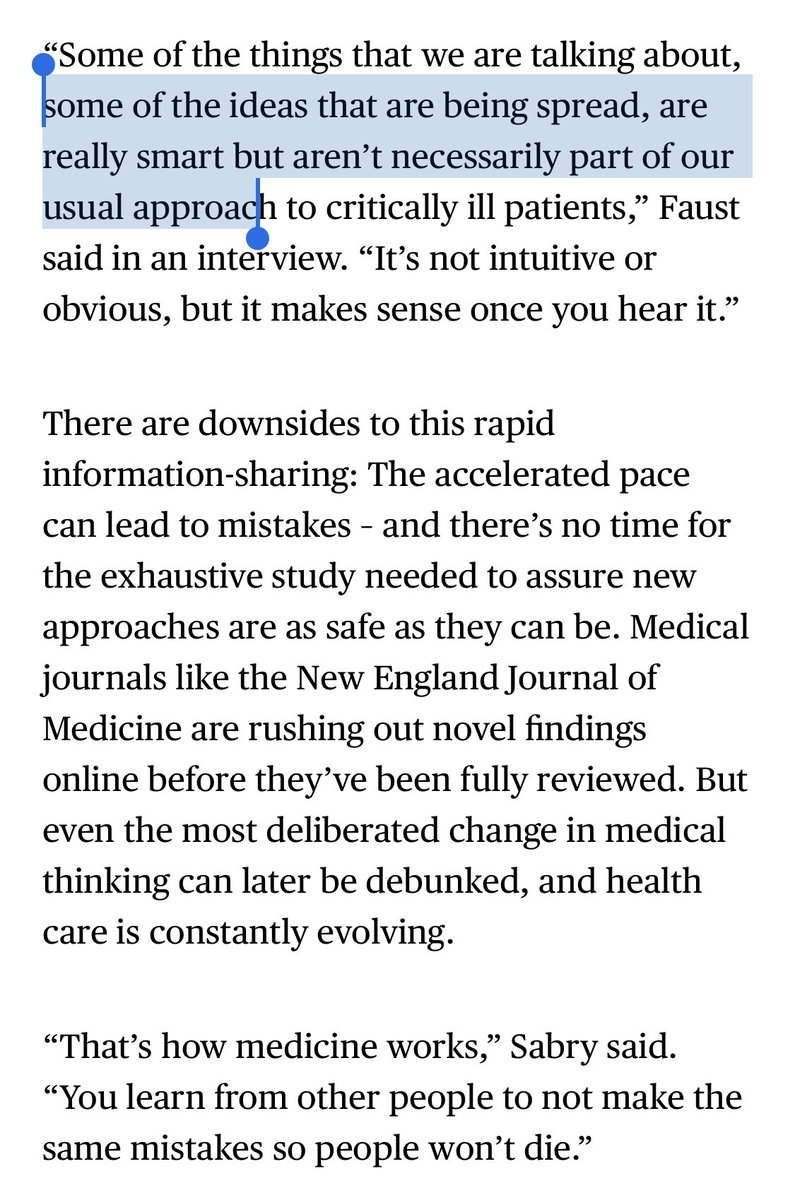
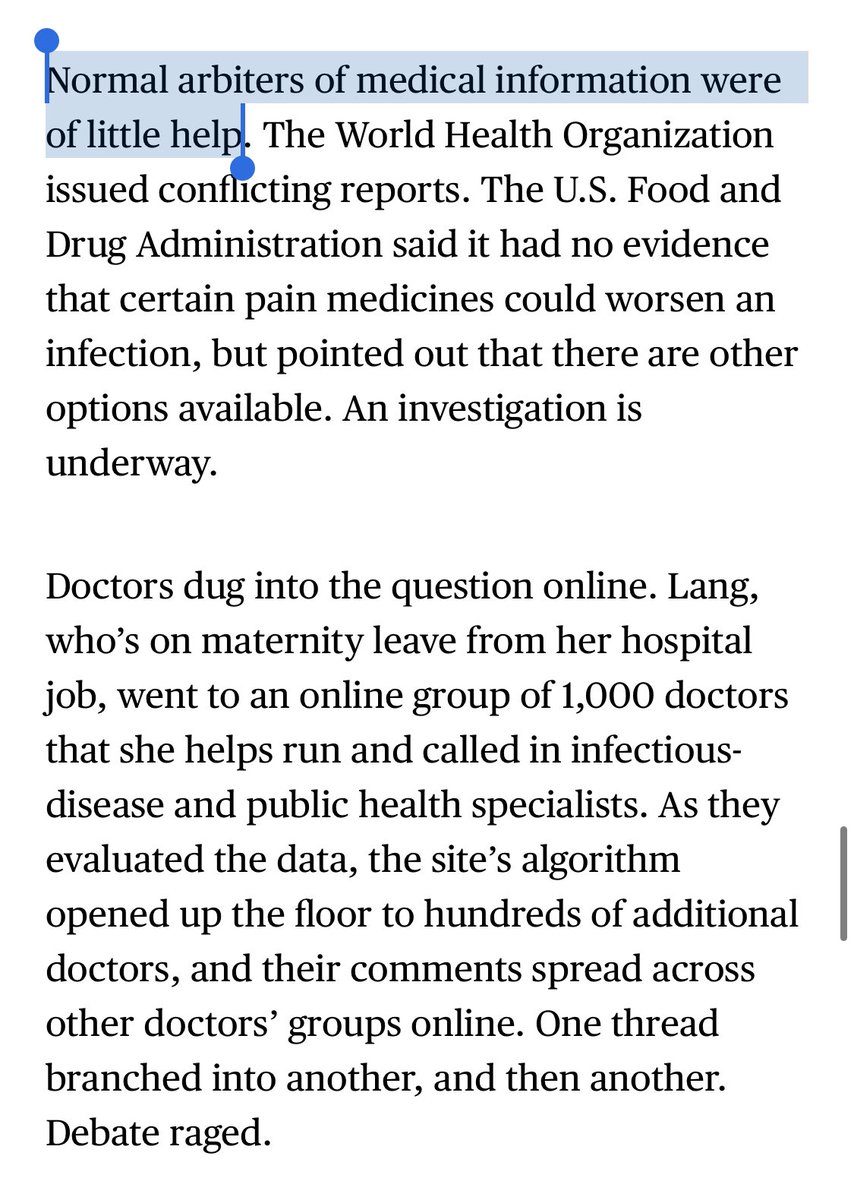
Otherwise the idea is that you’re basing medical judgments not on rigorous evidence but on hearsay.
en.wikipedia.org/wiki/Evidence-…
But taken too far, the EBM paradigm excludes any kind of fast, informal, iterative process in medicine. Yet speed of iteration (with patient consent/participation!) may produce better results than waiting for formal study.
That’s where we were. Then CDC failed. Now MDs are organizing a decentralized, iterative response.



